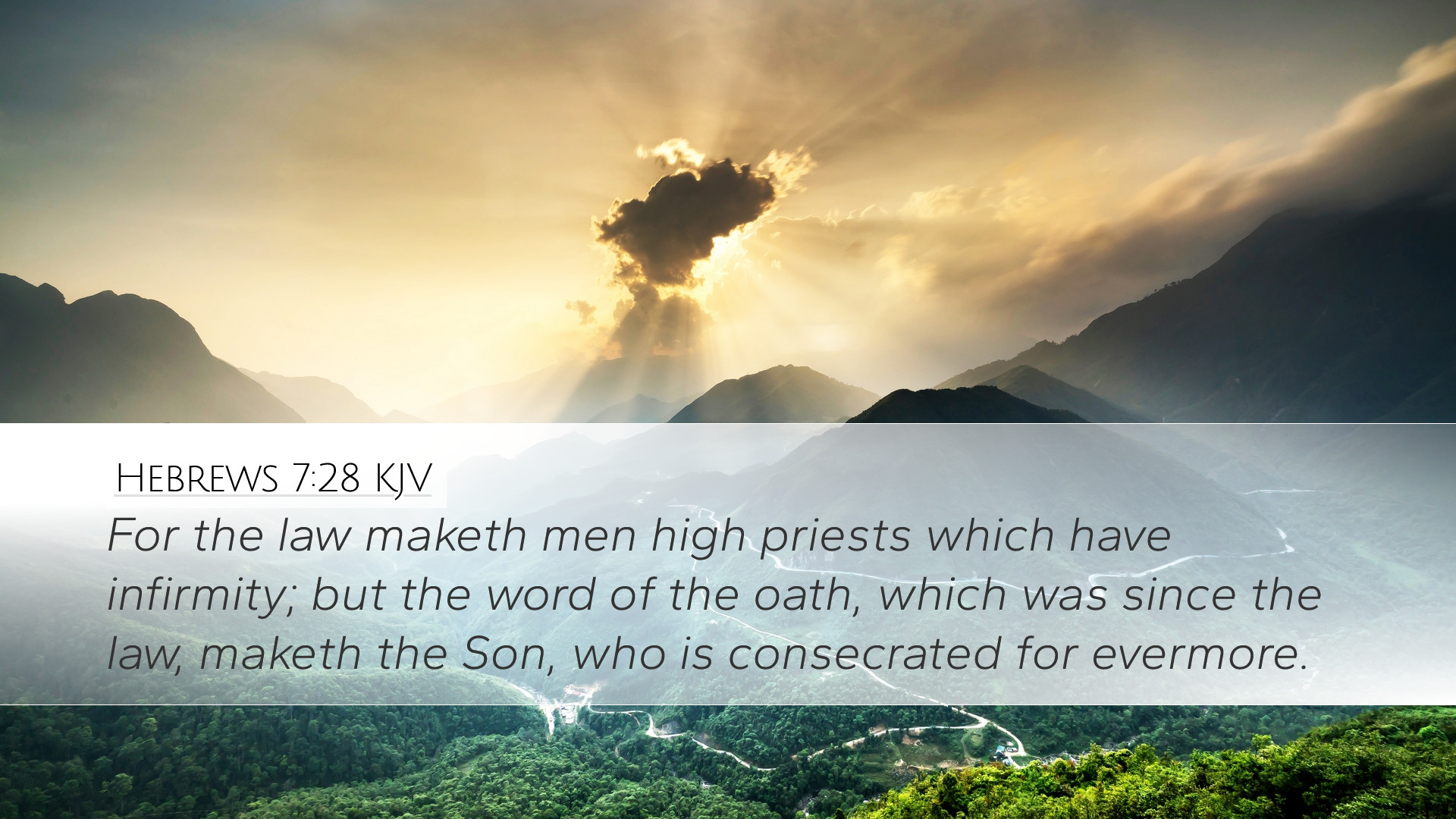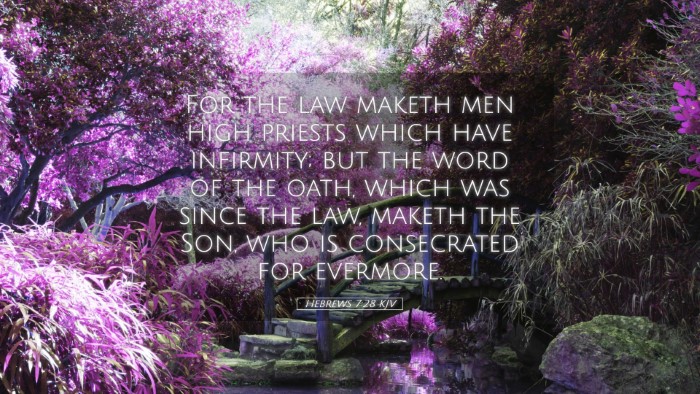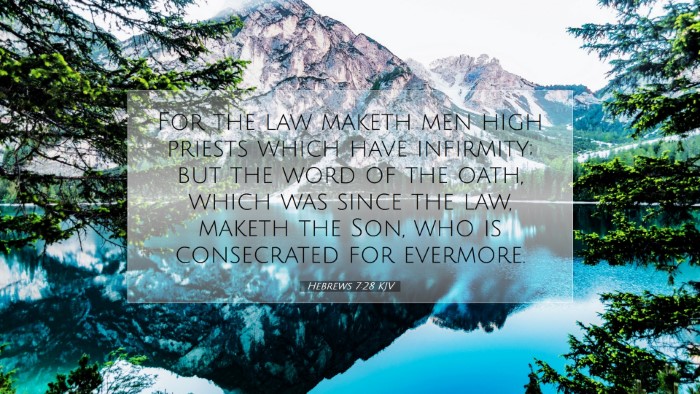Commentary on Hebrews 7:28
Hebrews 7:28 (KJV): "For the law maketh men high priests which have infirmity; but the word of the oath, which was since the law, maketh the Son, who is consecrated for evermore."
This verse encapsulates a pivotal comparison between the Levitical priesthood and the eternal priesthood of Christ. The author of Hebrews argues that the Levitical priests, ordained under the law, are inherently imperfect due to their human frailties. In contrast, Jesus, appointed by divine decree, serves as the ultimate and perfect high priest.
Exegesis and Theological Insights
- The Imperfection of the Levitical Priesthood:
Matthew Henry emphasizes that the high priests ordained by the law are subject to weaknesses and moral failures. Due to their human nature, they could not fully mediate between God and humanity. They were limited, not only by their physical bodies but also by the necessity of offering sacrifices for their own sins before addressing the sins of the people.
- The Divine Appointment of Christ:
Albert Barnes highlights that Christ's priesthood is established by an oath. This divine promise sets Him apart from the Levitical priests, affirming His eternal nature and the perfection of His sacrifice. Unlike His predecessors, Jesus does not need to offer sacrifices for His own sins, making Him uniquely qualified to intercede on behalf of humanity.
- The Contrast of Infirmity and Perfection:
Adam Clarke notes the stark contrast drawn between the frailty of human priests and the eternal efficacy of Christ's priesthood. The author of Hebrews underscores that while the law provisions for priests with limitations, God's oath establishes an everlasting priesthood in Jesus. This is crucial for understanding the sufficiency of Christ's redemptive work.
Theological Implications
This verse speaks profoundly to the doctrine of Christology, especially regarding the nature of Christ's high priesthood. It affirms that believers can have confidence in Jesus as their mediator because He is flawless and eternal, unlike the temporary and fallible human priests.
1. The Nature of Christ's Priesthood
The declaration that Christ is 'consecrated for evermore' emphasizes the permanence of His role as high priest. Whereas the Levitical priesthood was marked by succession and eventual death, Jesus holds an unending priesthood, essential for our assurance of salvation. The nature of His consecration reflects His separation unto God for this specific purpose, which magnifies the efficacy of His atoning work.
2. The Role of the Oath
The mention of 'the word of the oath' carries significant weight in theological discourse. It denotes God's guarantee regarding the priesthood of Christ. This divine endorsement differentiates Jesus from any prior priest, signifying that His work is not only approved but also unassailable by any covenantal or sacrificial critique.
3. The Need for An Eternal Priest
The inadequacy of the Levitical priests illustrates the necessity for a different kind of mediator—one who transcends temporal limitations. In our understanding of redemption, it is crucial to reflect on how Jesus fulfills and overcomes the imperfections inherent in the old covenant, providing a pathway to reconciliation that is both complete and eternal.
Conclusion
Hebrews 7:28 serves as a compelling reminder of God’s redemptive plan through Christ. The insights from the commentaries underscore the necessity of understanding Christ's role as our high priest, who is both eternally consecrated and divinely authorized. This passage invites pastors, students, theologians, and scholars to delve deeper into the implications of Christ’s perfect priesthood, enhancing our appreciation for the gift of salvation and our relationship with God.
In light of this verse, we are encouraged to approach God with confidence, knowing that we have an advocate who is everlasting and perfect. Thus, this scripture not only informs our theology but also shapes our worship and daily walk with the Lord.


